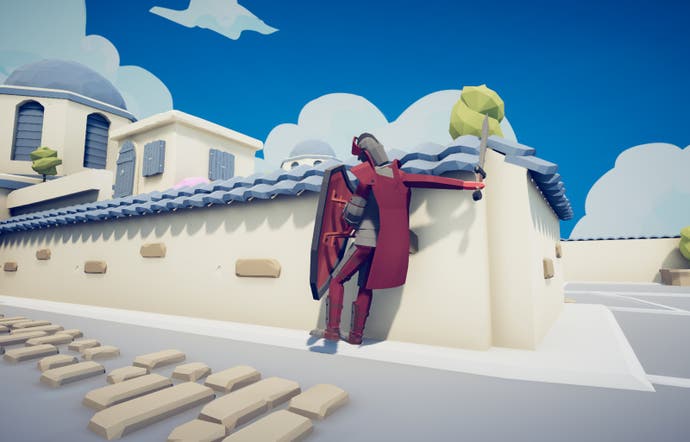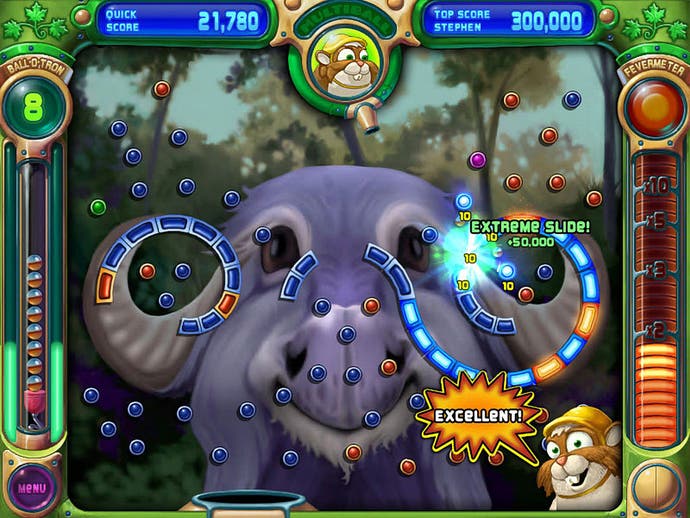TABS and the allure of a chemistry set
And a bit about Peggle.
Something brilliant happened in TABS the other day. TABS stands for Totally Accurate Battle Simulator, and it's a complete joy. You hover above a landscape, whack down a bunch of units, and then watch as your units smash into the enemy's units. Hilarity, as they say, ensues.
I was on the city-ish map. Streets and buildings, a Greek vibe, domes and sunbleached plaster. I had decided to splurge on a bunch of very cheap melee units and one bigger, more expensive melee unit to bring up the rear. I think it was a knight. The knight has a sword and shield, and as I sat back and watched the chaos unfold, I realised something was missing. Where was my sword-and-shield guy? Where was the guy I'd spent all my money on?
This picture tells the story:

There are two reasons this moment worked so well, I think. TABS is a game that encourages glitches and surprising physics fails. Its characters are sometimes alarmingly human in their animation, but with that comes the sort of pratfalls that the alarmingly human are wont to perform. So that's the first reason: this sort of malarkey is encouraged.
The second reason has to do with timing, or perhaps the player's role. In TABS you set things going. You design the parameters of an encounter, or at least the parameters of your side of the encounter. And then? Then you watch. You watch it unfold. TABS is a game about watching. This is probably why it's so brilliantly suited to those reaction videos people do on YouTube.
This has made me think. Games about watching! Games in which the fun comes from setting things up and then watching how they play out. Domino-run games: preparation and then, Whoa! Look what happened.
Edge magazine back in the day suggested that open-world games, a genre that, back in the day, had no name yet, might be called "chemistry set games". This was clearly never going to happen, but I loved the gumption of the idea anyway. But now, here we are and TABS is very much a chemistry set game. You design your experiment and then you sit back and watch. (I still don't think the term "chemistry set game" is going to stick.)

The more you look for them, the more these games are everywhere. We had a conversation in the office the other day in which I discovered that several members of the editorial team had never played Peggle. First things first: don't buy it on Steam if you're running Windows 10 because it flat out doesn't work and that's a travesty. Anyway, we got it running on the Xbox and then we were all lost in Peggle for an afternoon. Man, it holds up. What a classic. And low and behold: aim, fire, and then watch. Watch as the ball bounces beyond the moment in which you could have foreseen what it was going to do. Marvel as the chemistry set starts to bubble and fizz.

